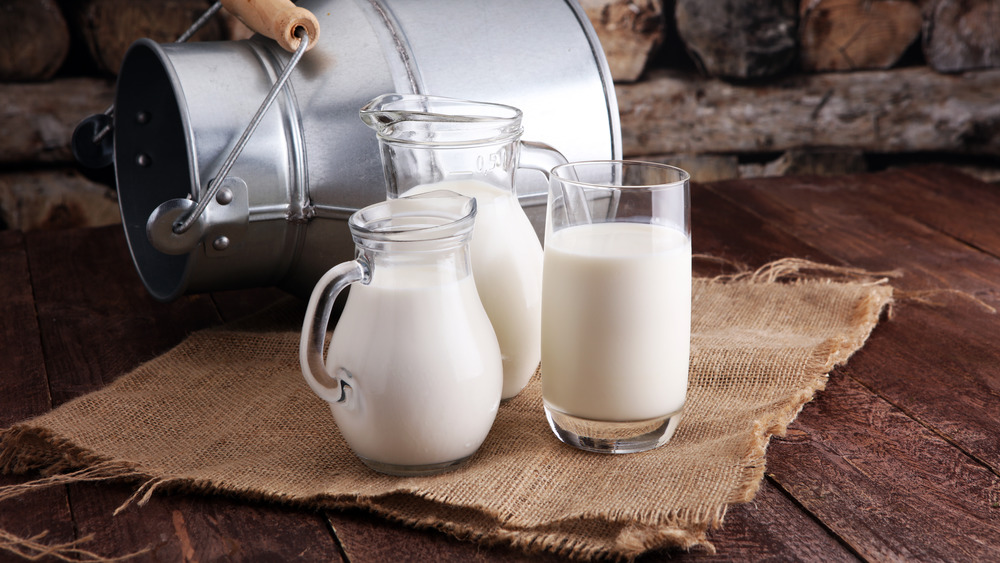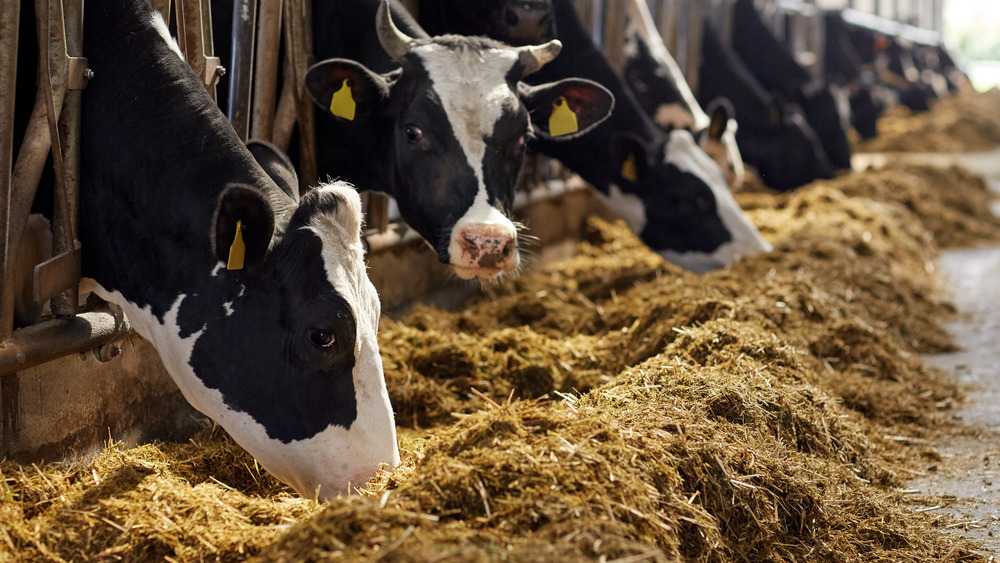What You Didn't Know About Whole Milk
Few drinks are as contentious as whole milk. You might have heard that it's bad for you, that it wrecks the environment, or even that it will give you cancer. And while several claims about whole milk have some truth to them, others are a bit more complex. A drink that families used to gulp by the glass around the dinner table has had a rough time of it lately (via Eat This, Not That!), but has the time really come to replace it with dairy-free alternatives? First, some facts about whole milk's nutrition.
You may know that "whole" milk isn't that high in fat. Whole milk weighs in at 3.5 percent milkfat, less than twice the amount of 2 percent or skim milk, which has some of its fat and calories stripped off (via Washington Post). It's not much more caloric than oat milk, either (via Buzzfeed News). And if we've learned anything about fat in the last decade, it's that full-fat dairy can be full of "good" fats, and that the reduced-fat varieties aren't necessarily "healthier" (via Healthline).
Nutritionists say whole dairy can be part of a balanced diet (via American Society for Nutrition and Eat This, Not That!), but if you're not into dairy, alternatives like nut milks and grain milks can be nutritionally comparable, and are often fortified with the calcium you'd get from dairy (via Healthline and Mayo Clinic).
Does whole milk live up to its reputation?
To be sure, there are some downsides to whole milk. Unfortunately most of us, it's actually hard to digest lactose, the main sugar in whole milk, beyond childhood (via Healthline). Milk is good for kids, but depending how your genes evolved to break down dairy, you could be in for a bad digestion experience (via Clinical and Experimental Gastroenterology). Weirdly enough, though, whole milk has less lactose than reduced fat milk, according to The Guardian. Whole milk is also not a great environmental choice compared to soy or oat milks, as it comes from methane-burping, grain-eating cows that take many resources to raise states the BBC.
And though there's evidence that points to dairy as a factor in breakouts, Verywell Health explains this tends to be the case with skim milk more so than whole. Still, if you're prone to acne, it might help to cut back. But when it comes to some of the scarier rumors you may have heard about whole milk, take them with a grain of salt.
A recent study had linked drinking milk with breast cancer, but as it turns out, the results were overblown, according to the Washington Post. But what about the risks posed from not drinking organic milk or of ingesting hormones from cows that were given artificial growth supplements? That "not made from cows treated with rBST" might not have you completely covered, but it's a start (via Organic Valley). If you are able to, choose whole milk from cows treated humanely with labels like "Certified Humane" or "Animal Welfare Approved." This will give you more peace of mind when it comes to sipping on a cold glass of milk.

